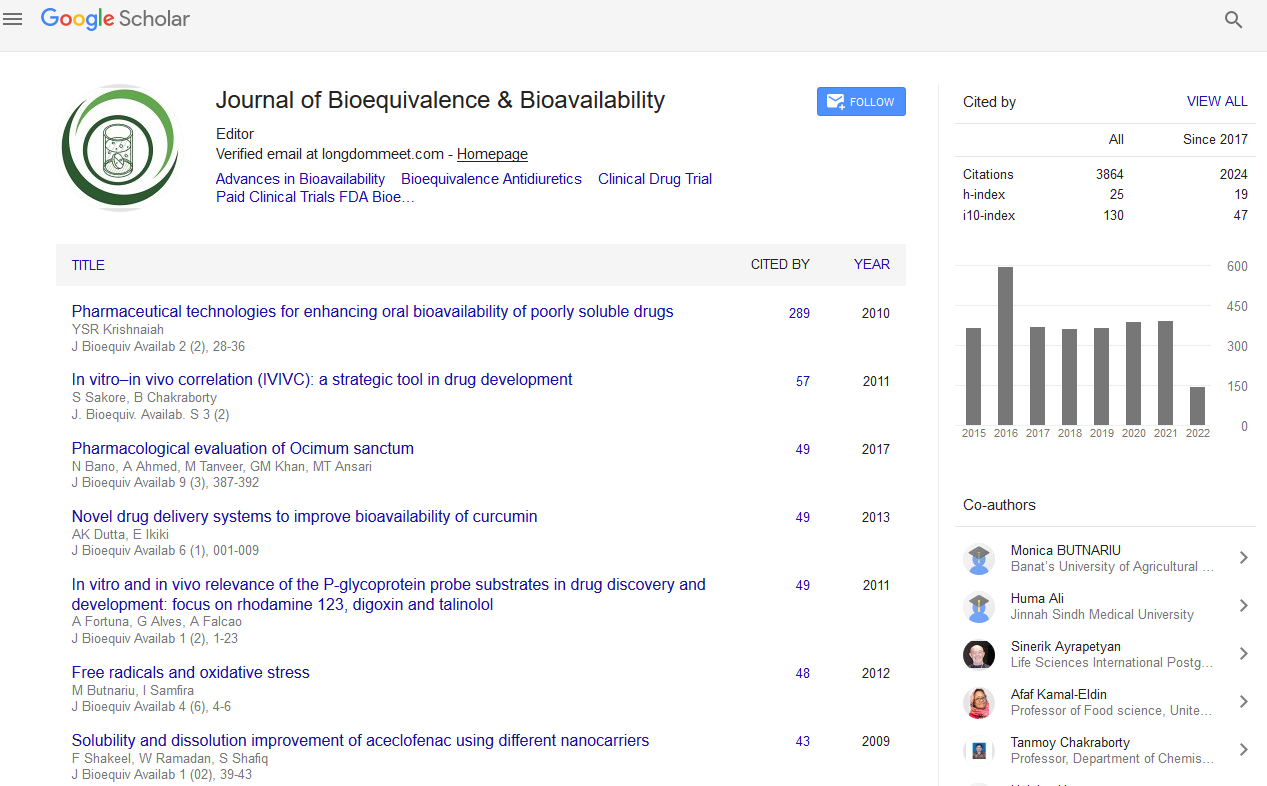PMC/PubMed Indexed Articles
Indexed In
- Academic Journals Database
- Open J Gate
- Genamics JournalSeek
- Academic Keys
- JournalTOCs
- China National Knowledge Infrastructure (CNKI)
- CiteFactor
- Scimago
- Ulrich's Periodicals Directory
- Electronic Journals Library
- RefSeek
- Hamdard University
- EBSCO A-Z
- OCLC- WorldCat
- SWB online catalog
- Virtual Library of Biology (vifabio)
- Publons
- MIAR
- University Grants Commission
- Geneva Foundation for Medical Education and Research
- Euro Pub
- Google Scholar
Useful Links
Share This Page
Journal Flyer

Open Access Journals
- Agri and Aquaculture
- Biochemistry
- Bioinformatics & Systems Biology
- Business & Management
- Chemistry
- Clinical Sciences
- Engineering
- Food & Nutrition
- General Science
- Genetics & Molecular Biology
- Immunology & Microbiology
- Medical Sciences
- Neuroscience & Psychology
- Nursing & Health Care
- Pharmaceutical Sciences
Promoters promoting transgenic research
International Conference and Exhibition on Biowaivers & Biosimilars
September 10-12, 2012 Hilton San Antonio Airport, USA
Rajiv Ranjan
Accepted Abstracts: J Bioequiv Availab
Abstract:
Plant can be used as an alternative expression system for production of recombinant proteins due to reduced production cost and lower capital investment along with appropriate posttranslational modification. One of the major limitations in moving plant-produced heterologous proteins from developmental research to commercial products is lower level of expression of transgene in plant. Expression levels of transgene/gene of interest depend upon strength of genetic regulator, the promoter. In plant molecular pharming, strong promoters may be needed to achieve maximal expression of multiple genes by successive event of transformations. However, a risk of multiple transformations by a single promoter is that, it might lead to silencing of both genes in successive generation through homologous recombination. Considering all the facts, attempts are being made worldwide to develop engineered promoter with enhanced strength and heterogeneous sequences employing different approaches including promoter DNA hybridization and shuffling. Recently, adopting these novel techniques we have developed several useful promoters viz., MSgt-FSgt, FuasFScp, MUAS35SCP. They showed 5-8 times stronger activity in transgenic tobacco and Arabidopsis as compared to CaMV35S, a widely used promoter in plant molecular biology. Functional activities of such promoters were further characterized in animal cell line using different cytokines such as IL-33 and IL-35. Our observation clearly indicated that these promoters are active not only in plant but also in animal cell line at greater level. The genetic tools developed by our group could be potential for controlling expression of various genes in both transgenic plants and animal


